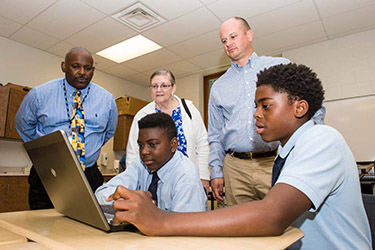Take the Next Step
Finding the right college means finding the right fit. See all that the College of Health, Education, and Human Services has to offer by visiting campus.

Welcome to the Office of Partnerships and Field Experiences (OPFE). Our mission is to develop quality professionals who are engaged with the communities we serve through mutually beneficial partnerships and diverse field experiences.
Finding the right college means finding the right fit. See all that the College of Health, Education, and Human Services has to offer by visiting campus.